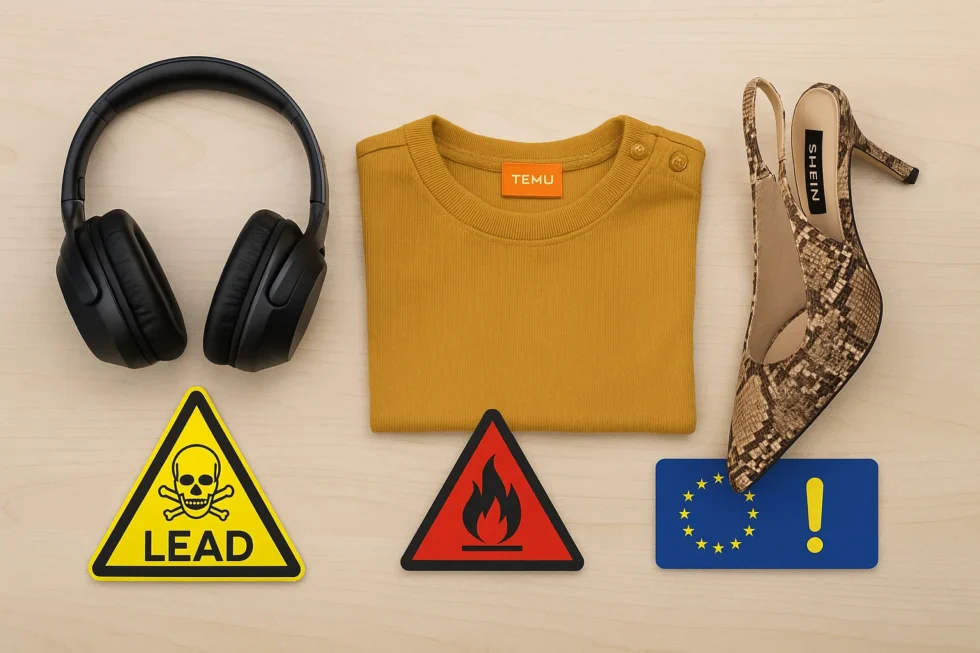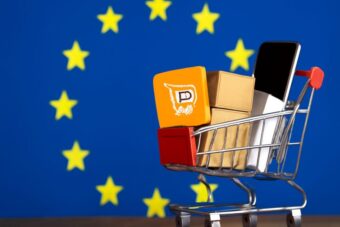Dangerous findings at Temu and Shein: Toxic metals, fire risks and EU safety violations

Frankfurt, November 2, 2025 – A new investigation by Stiftung Warentest has caused alarm across Europe: numerous products sold on Chinese shopping platforms Temu and Shein were found to contain hazardous substances, posing serious health and fire risks. Items such as jewelry, children’s toys, and electronic devices failed to meet European Union safety standards. G.Business reports on these findings based on the latest official results published by Stiftung Warentest.
Heavy metals in jewelry – a shocking discovery
Labor tests revealed that some Shein necklaces contained cadmium levels exceeding the legal EU limit by up to 8,500 times. Cadmium is considered carcinogenic and can cause kidney and bone damage. Stiftung Warentest expert Florian Ostermann urged consumers to dispose of these items immediately, emphasizing that such materials should be taken to hazardous waste collection points, not regular household trash.
Other contaminated or unsafe products
The investigation also exposed alarming defects in many everyday items sold via Temu and Shein:
- Baby cloths contained excessive amounts of formaldehyde, a known allergen.
- Children’s squeaky balls exceeded the permissible noise level.
- Packaging and warning labels were often misleading or missing.
These violations highlight how poorly controlled many products on the platforms are. Consumers are urged to be skeptical of suspiciously cheap deals and verify safety markings before purchasing.
Overheating chargers – a household fire hazard
In the electronics category, nearly all USB chargers tested failed to meet EU standards. Some units reached temperatures up to 88°C, well above the 77°C limit, creating fire and shock hazards. Such overheating can deform casings and damage insulation, potentially igniting fires.
Stiftung Warentest’s consumer advice
To protect themselves, buyers should follow these key recommendations:
- Verify product numbers on the Stiftung Warentest warning list.
- Immediately dispose of affected products via official waste stations.
- Purchase only from certified EU-compliant sellers.
- Check for CE marks, clear manuals, and safety warnings.
- Avoid products without manufacturer or origin information.
Applying these measures helps prevent household accidents and exposure to toxic materials.
International cooperation and alarming results
The study was carried out together with consumer organizations from Denmark and Belgium, covering 162 products(54 necklaces, 54 chargers, 54 toys). All items were purchased directly from third-party sellers on Temu and Shein to simulate real conditions. The results were alarming – many products were of poor quality and potentially dangerous.
What the study reveals
Researchers aimed to determine how strictly major Chinese marketplaces comply with EU product laws. The findings show a lack of transparency and insufficient safety checks. Stiftung Warentest calls for tougher regulation and greater accountability from online platforms to ensure consumer protection.
Warning list and safer online shopping practices
To support customers, Stiftung Warentest published an online warning list. Users can check whether their purchased product is affected by entering its code. Any listed item should be discarded immediately.
When shopping on Temu, Shein, or similar sites, experts recommend:
- Question unusually low prices – quality has a cost.
- Read customer reviews for material or odor complaints.
- Verify the shipping origin, as non-EU goods may follow different safety rules.
- Avoid products without CE labeling or safety instructions.
The investigation sends a clear message: low prices often hide high risks. Many Temu and Shein products violate EU regulations and endanger consumer health. Conscious shopping means looking beyond discounts and prioritizing quality, origin, and certification. Stiftung Warentest’s results are a stark warning — a cheap deal online can turn into an expensive health hazard.
Stay connected for news that works — timely, factual, and free from opinion. Learn more about this topic and related developments here: Nobel Peace Prize 2025: Who received the world’s most prestigious award this year
